

Right
Foundation
I’m a horrible singer — one of those kids they hid in the back of church choirs. But, in Baxter, no one could throw tomatoes at me. The worst that could happen was a chipmunk hurling a nut at my feet. On the way up rugged Katahdin, we both permanently scarred our wedding rings scrambling across sharp granite boulders. It was of no concern. We had blue skies, endless vistas, and pristine, pine-scented air. Instead of thousands of dollars plunked down for people to wait on us, we were in bliss over where our two feet could take us. She was my girl, I was her boy, and the outdoors were all we needed to get by.
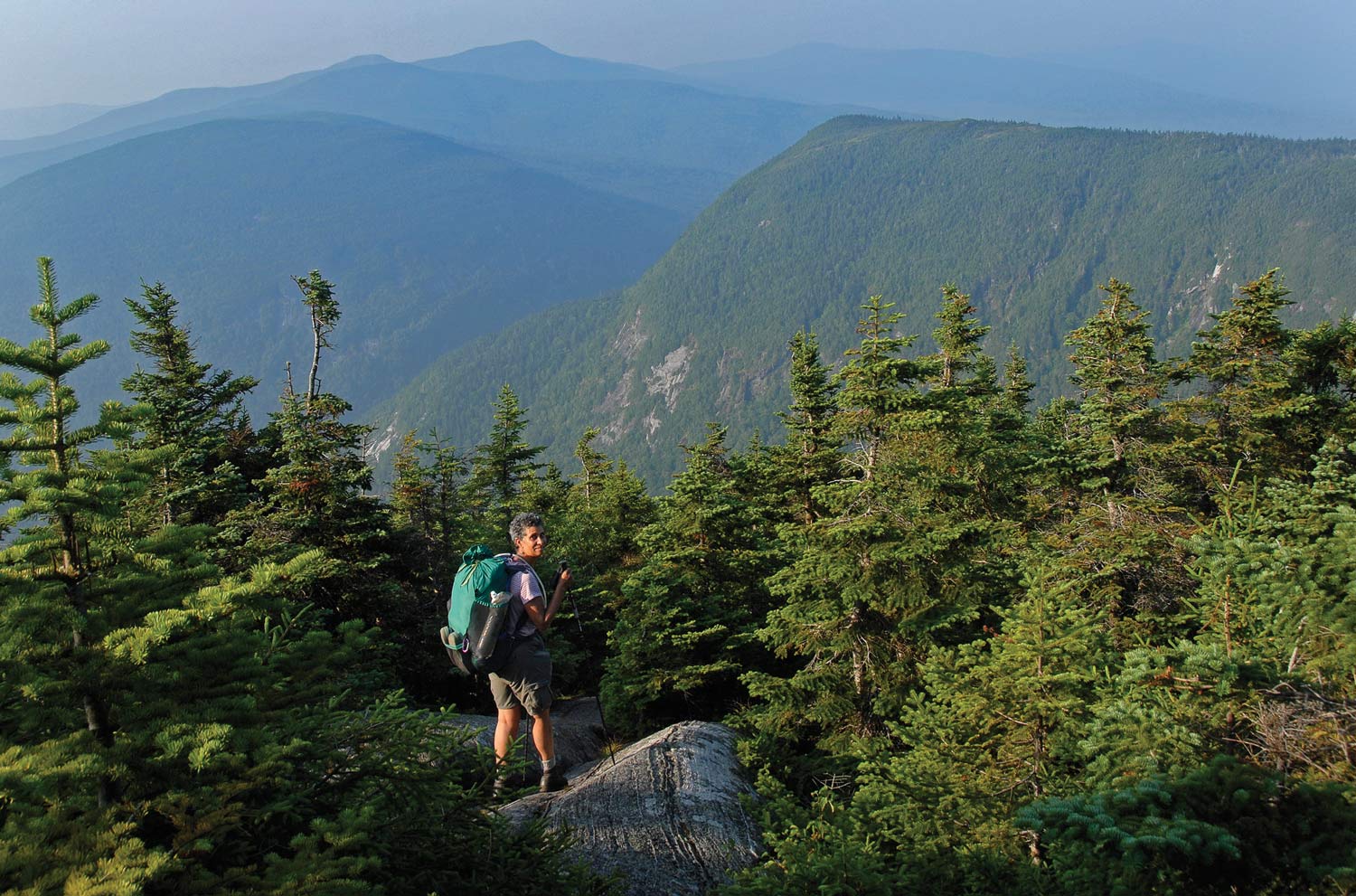
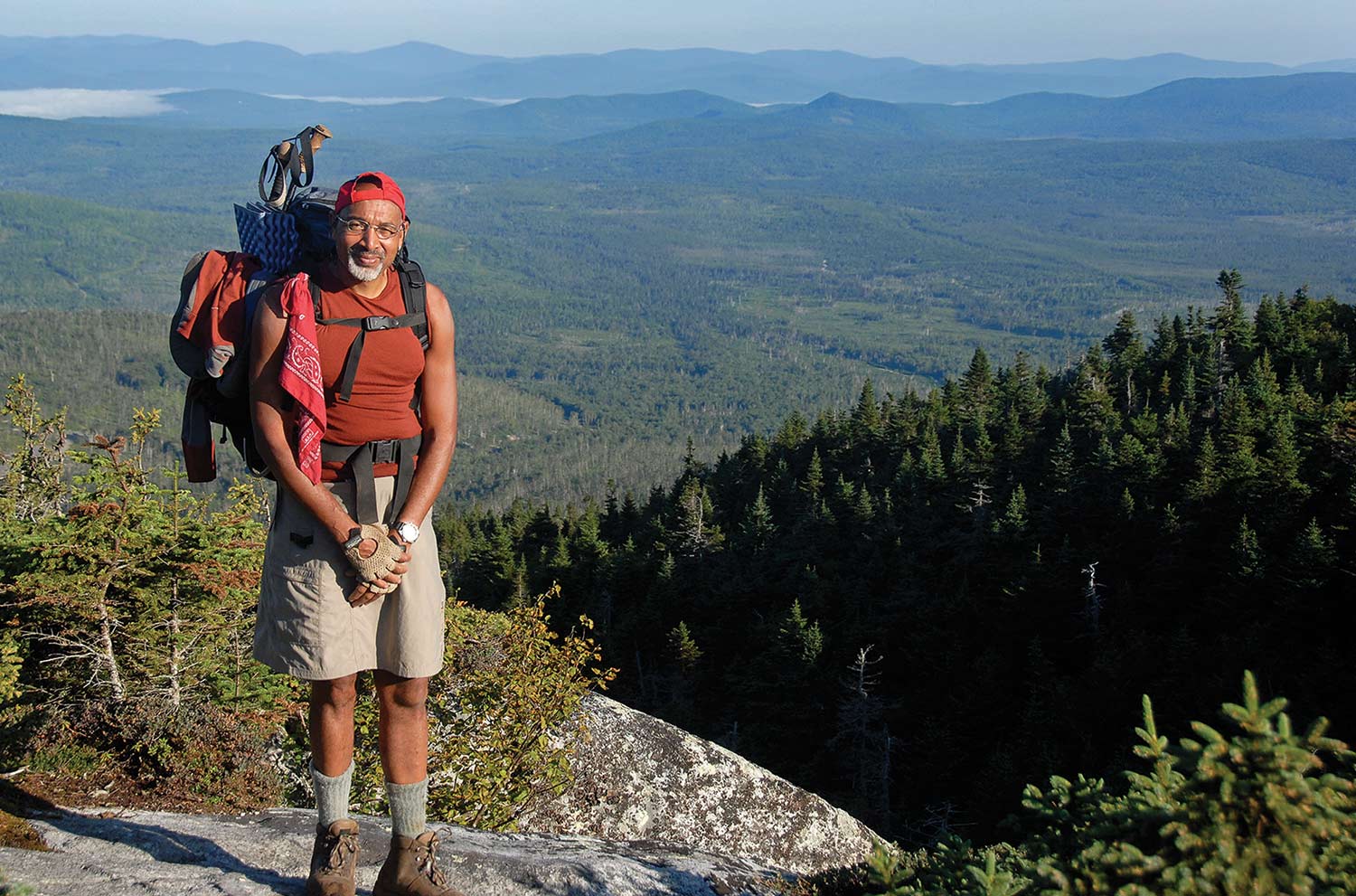
Our fifth wedding anniversary was spent backpacking in Yosemite National Park, with a golden eagle flying right over our heads at ten thousand feet. On that trip, we decided to have children while overlooking Tenaya Lake. The very next year, we were hiking on the Athabasca glacier in Canada’s Jasper National Park, with me carrying on my back our bundled-up first son, Omar. Our tenth anniversary was spent — while Michelle was pregnant with our second child, Tano — looking up at bald eagles and Blackburnian warblers in Downeast Maine and looking out from promontories at breaching whales and walking in mudflats that stretched far out toward the horizon at low tide.
Our twentieth anniversary was spent hiking hut-to-hut with close friends in the White Mountains of New Hampshire. Our twenty-fifth was spent wading thigh-deep in frigid water two miles into the Narrows of Zion National Park. We spent our thirtieth going back once more to Baxter State Park and climbing Katahdin. This time, we took the Appalachian Trail route with our youngest son and several close friends as part of Michelle’s thirteen-year-long quest of section-hiking the Trail.
The outdoors were the backdrop for many other life events. To celebrate Michelle’s graduation from medical school, we tent-camped in Death Valley and backpacked both at Point Reyes National Seashore and in Yosemite. When we both quit our old jobs at the same time in 1988, we delayed our new jobs so we could drive from Cambridge, Massachusetts to Alaska, car camping most of the way with our toddler, Omar. We saw grizzly bears, killer whales, horned and tufted puffins, and picked mussels at low tide for soup.
All of this exposure to nature had an effect on our growing family. Our boys displayed a caring for animals at a young age. When Omar was seven, we were bicycling on a rail trail in northern Minnesota. He spotted an injured blue jay that did not look like it was long for this world, but he insisted that we scoop up the bird and try to find a veterinarian to save its life.
The outdoors have been at the center of our family, friendship, and volunteering lives since Michelle and I met in 1979. More accurately, the summits, the loons with babies on their back, the western canyon and dune landscapes, the comets and shooting stars in the sky, the pastel purple dawns and blazing orange sunsets over land and sea, the simple scent of pines, and the ability to share them with each other and our community have in fact centered our lives.
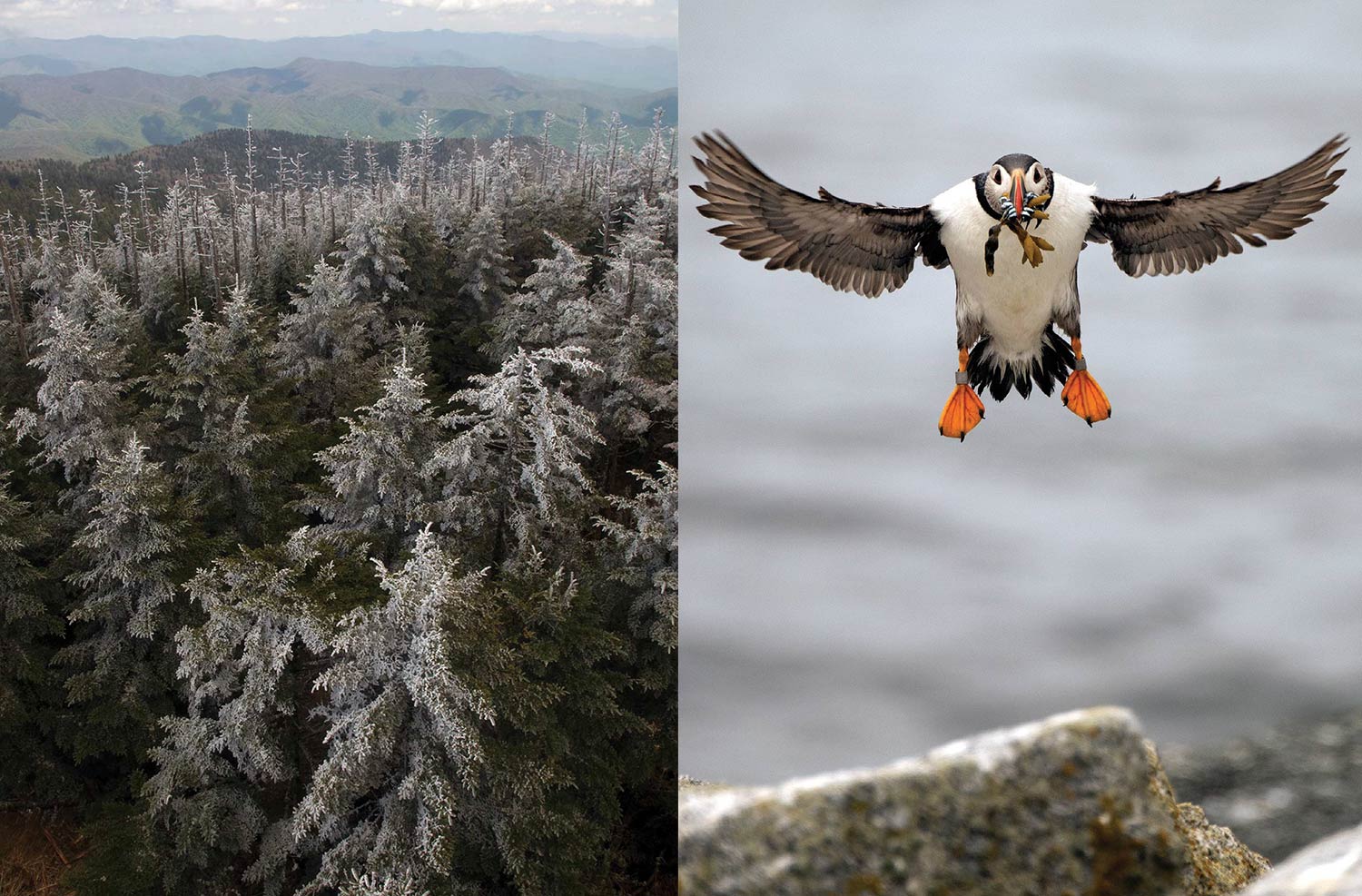
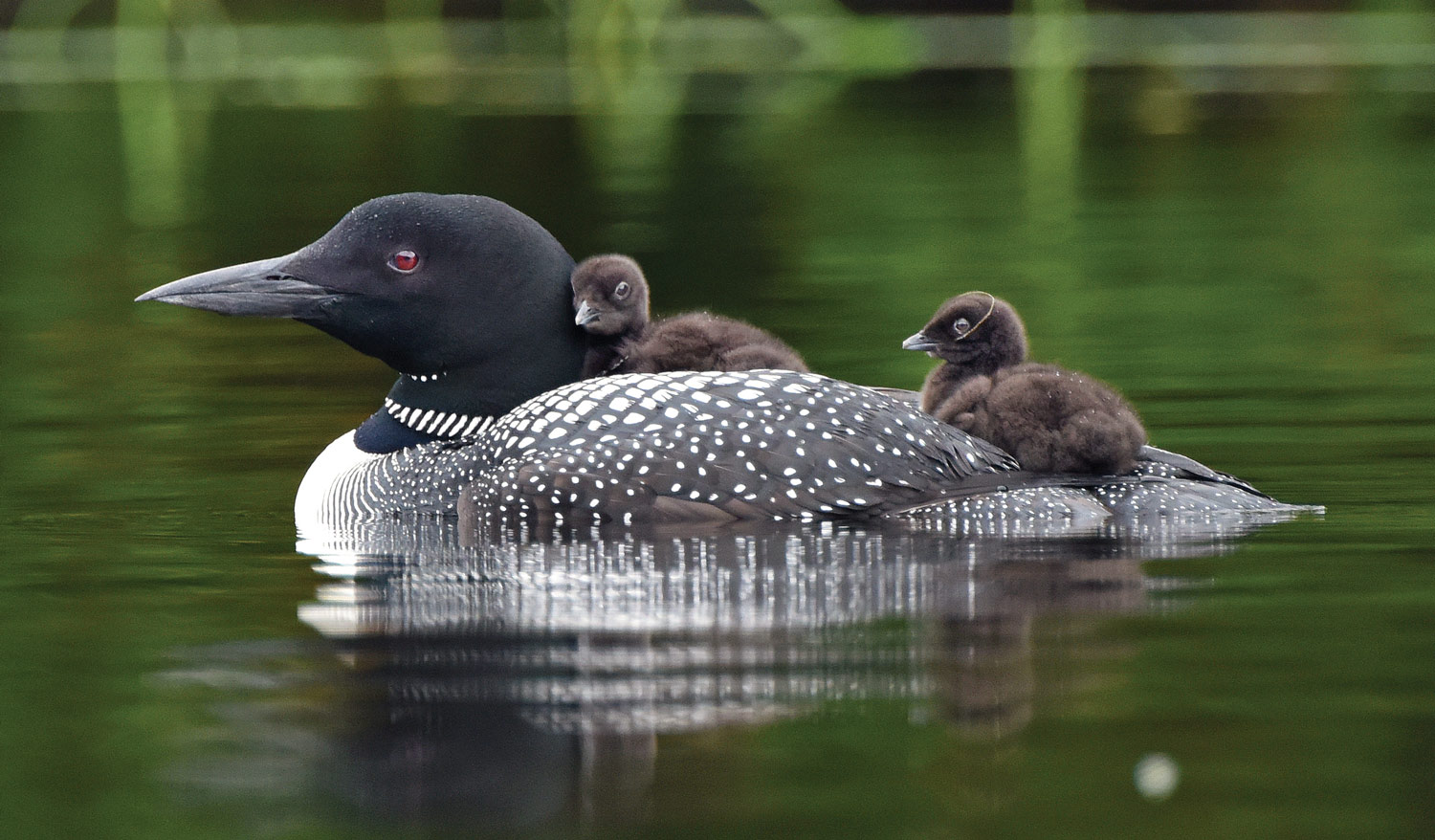
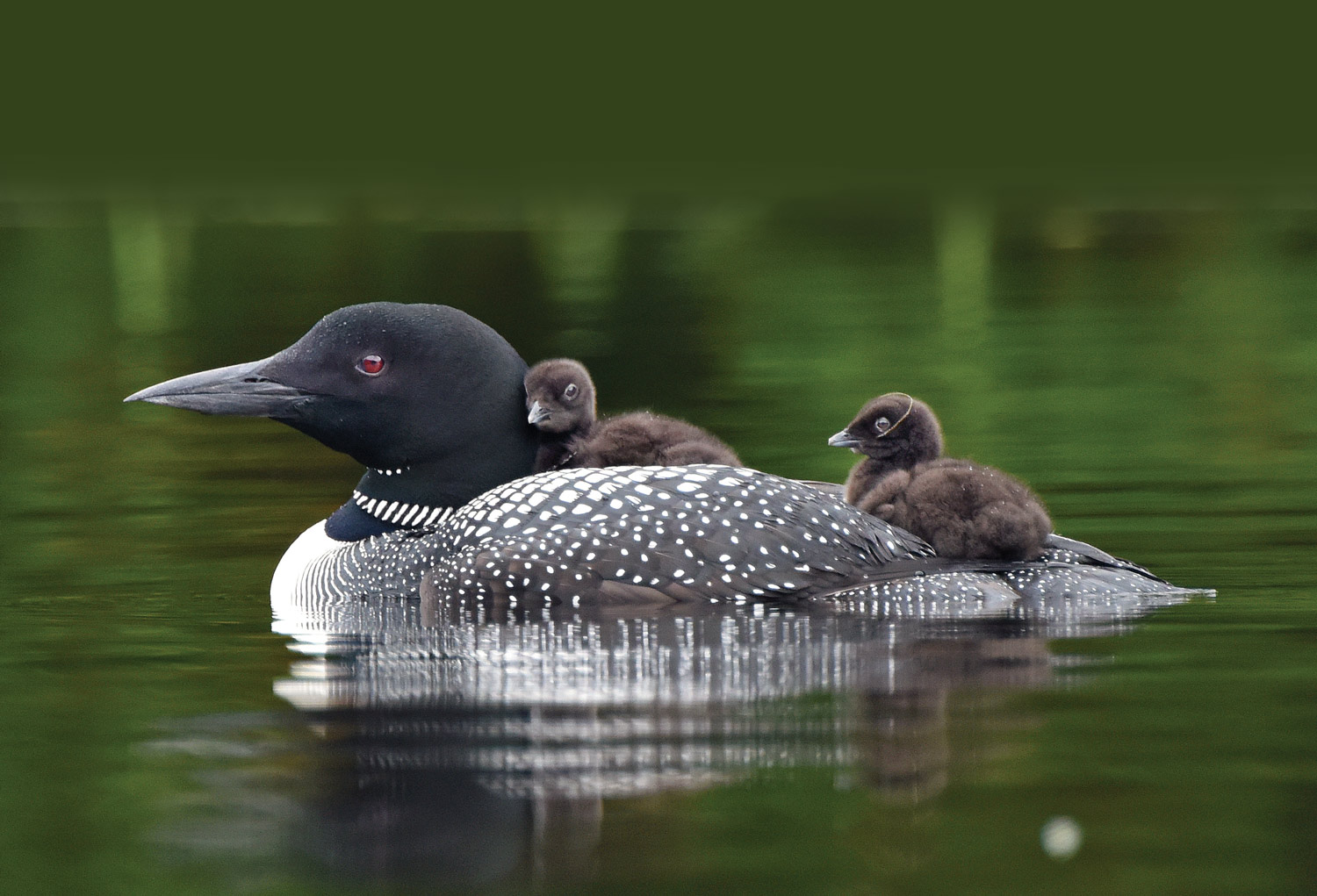
One alternative I’ve embraced over the years is the southern African concept of “ubuntu.” It is generally translated across several languages and nations as “I am because we are,” or “a person is a person through other persons.” The late Nobel laureate Bishop Desmond Tutu defined ubuntu as meaning, “My humanity is caught up and is inextricably bound up, in yours.”
In unspoken ways, ubuntu is woven through much of African American culture. Some of the most powerful experiences of intimacy, connection, and love that I have experienced in my life have occurred in the wilderness, guided by the spirit of ubuntu. They almost all involve teams where individuals share the same goals and commit to supporting each other, regardless of individual athletic ability and prior outdoor skills.
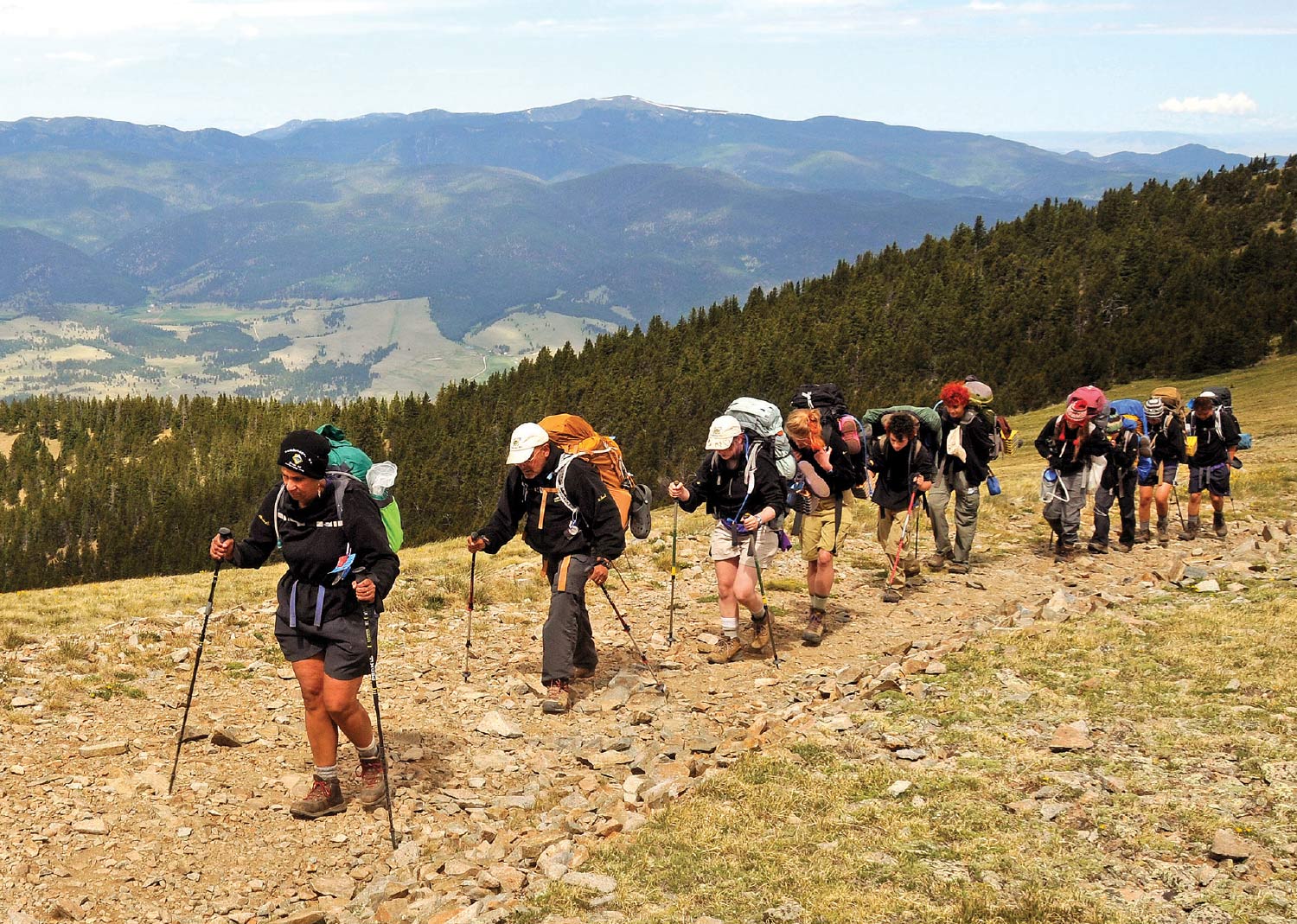
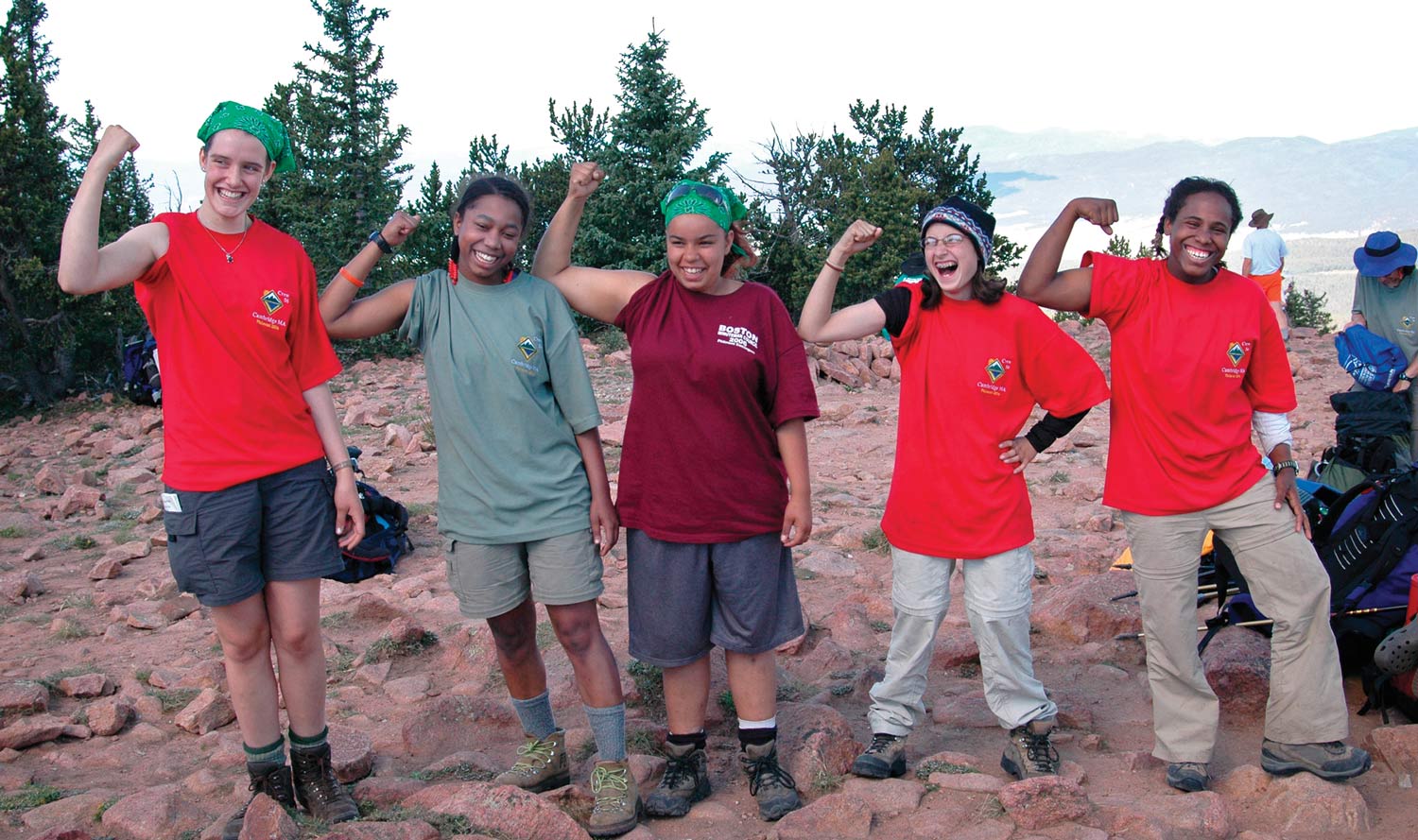
I passed on that patrol experience to one of my sons, who eventually became an Eagle Scout. I’ve been a volunteer in his Boy Scout (now Scouts BSA) troop in Cambridge, Massachusetts for nearly twenty-five years. Unlike a sports team where the coach is essentially an autocrat, Scouting allowed us to do community parenting in a wonderful “sideways” manner, being in the background as youth made most major decisions of setting up camp, cooking, and cleaning up. Many nights were spent by adults in what we called “the Old Goat Patrol,” laughing around the campfire, and smiling to each other over signs of maturity and discovery. An urban troop, Scouting allowed us to introduce youth to everything from trout in ponds to bears scrambling up trees, Everglades swamps to Swiss Alps peaks, and from winter snowshoeing in New Hampshire to blistering hiking at the Philmont Scout Ranch in New Mexico.
If I had to pick one seminal moment where the outdoors provided the backdrop for special connections, it was in 2006, when Derrick and I accompanied the first co-ed crew in our council to Philmont. The crew of five girls and three boys would backpack in the wilderness for ten nights, making every decision short of those that might truly risk a life. The hope is that they hit the trail as girls and boys and come off the trail more like young women and men. That happened, with every bit of ubuntu that could be mustered. There were a couple of days where bickering and sloppiness was being noted by other crews, all-White and male. I pulled the girls aside and gave them “the talk.” Of the five girls, two were Black, two were White and one was Latina. I bluntly implored them not to feed into stereotypes that we don’t belong in the wilderness. There were many tears, but they pulled themselves together so dramatically that the least-in-shape of the girls led us over the second-highest peak in the park – 11,742-foot Mount Phillips – and led us on our final thirteen miles in 102-degree heat.
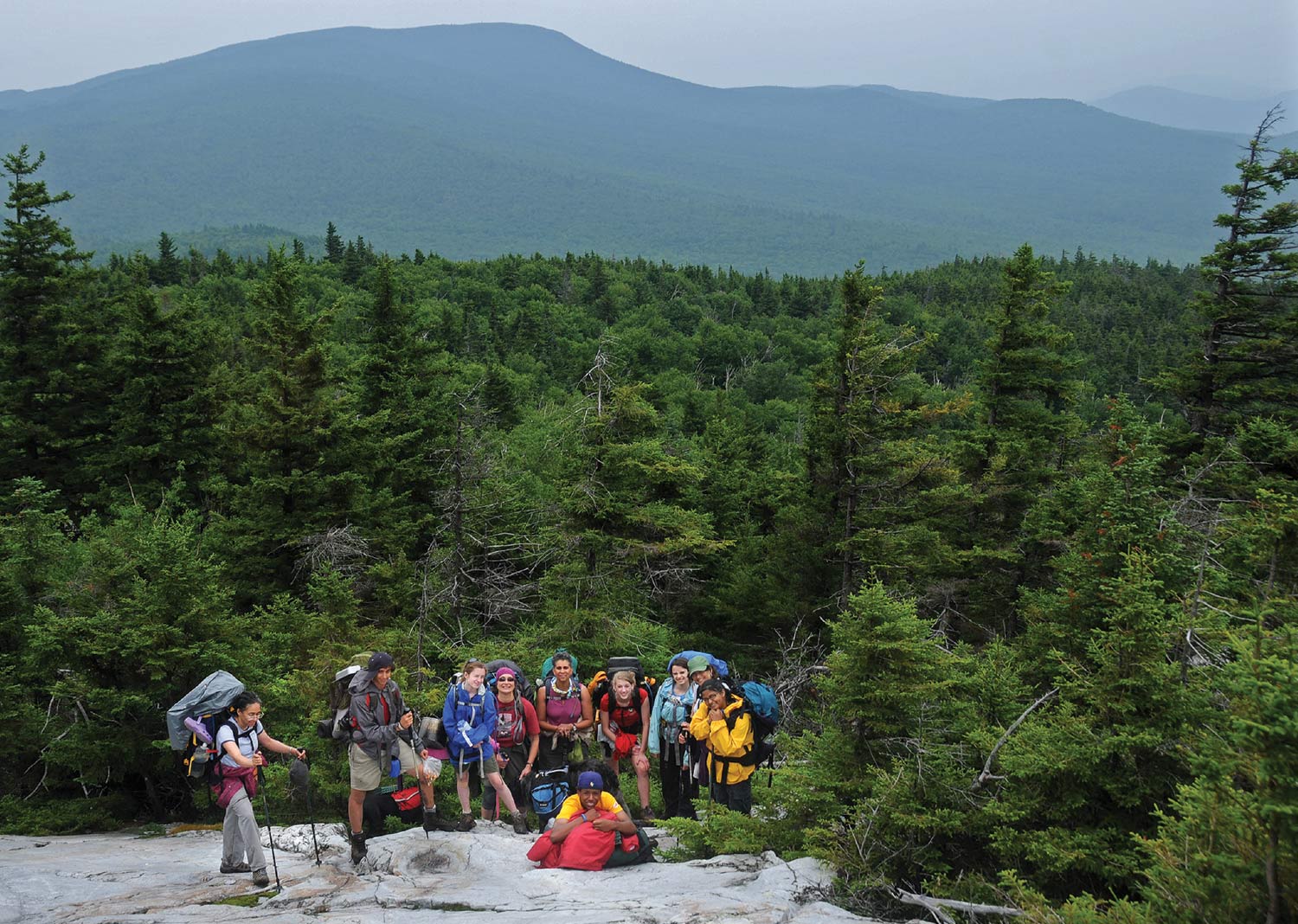
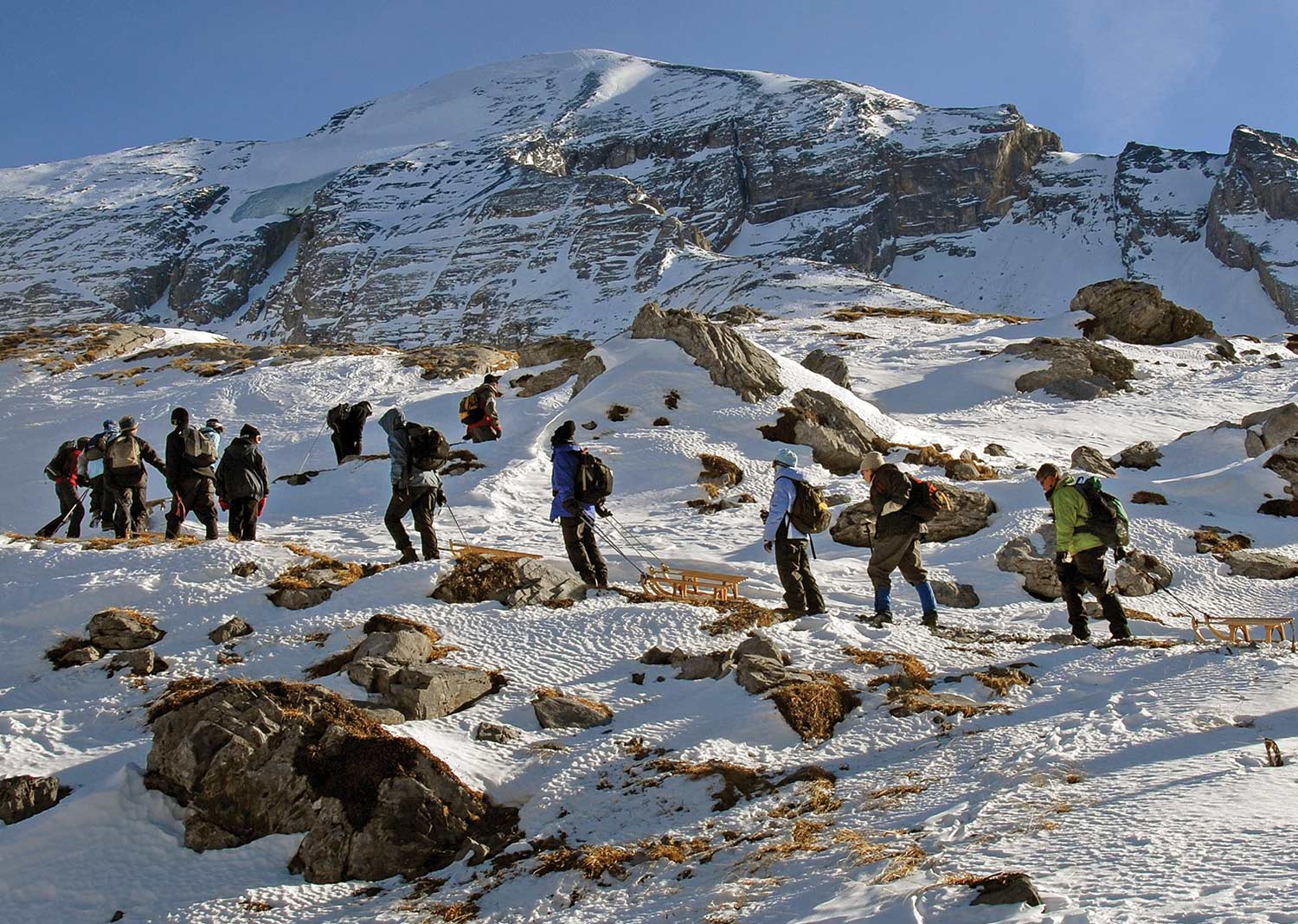
We were taking a moment to center ourselves in a world that often tries to run circles around us. Most of us were frequently the only Black person doing what they do at their office. For several of our friends, it was the only tent camping they ever did and will ever do. But, the camaraderie over cards and Scrabble, the friendly cookoff competitions, the sight of so many Black children hiking, biking, fishing, exploring for toads and frogs and exhibiting pure joy was worth any discomfort. Our oldest son, Omar, said he found the winter Black Pack trips to possess “a mysterious and calming allure” with the quietude of snow-covered lands. He said the snow, particularly after “ridiculous” blizzards, “served as a natural remedy to stress.”
We have also shared the outdoors with our elders. When they were alive, my parents and an aunt occasionally came up to our home in the western Maine woods, sharing sights of moose and hiking to White Mountain vistas. In 2005, Derrick took a beloved uncle to Death Valley, where they hiked in the dunes. At one moment, Derrick stopped to take a few pictures. By the time he was done, his uncle, then sixty-eight, had nearly ascended the summit, a mile off the road.
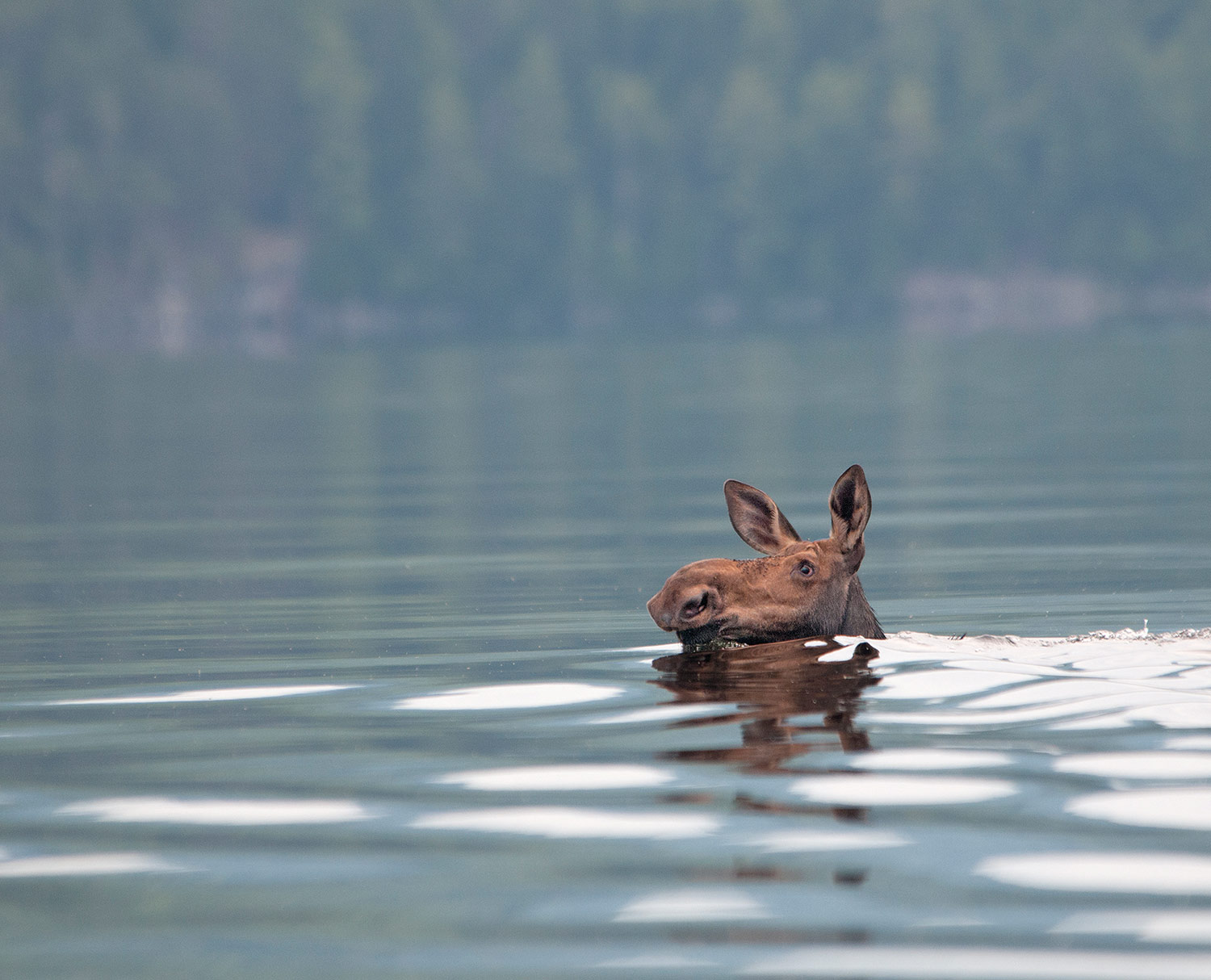
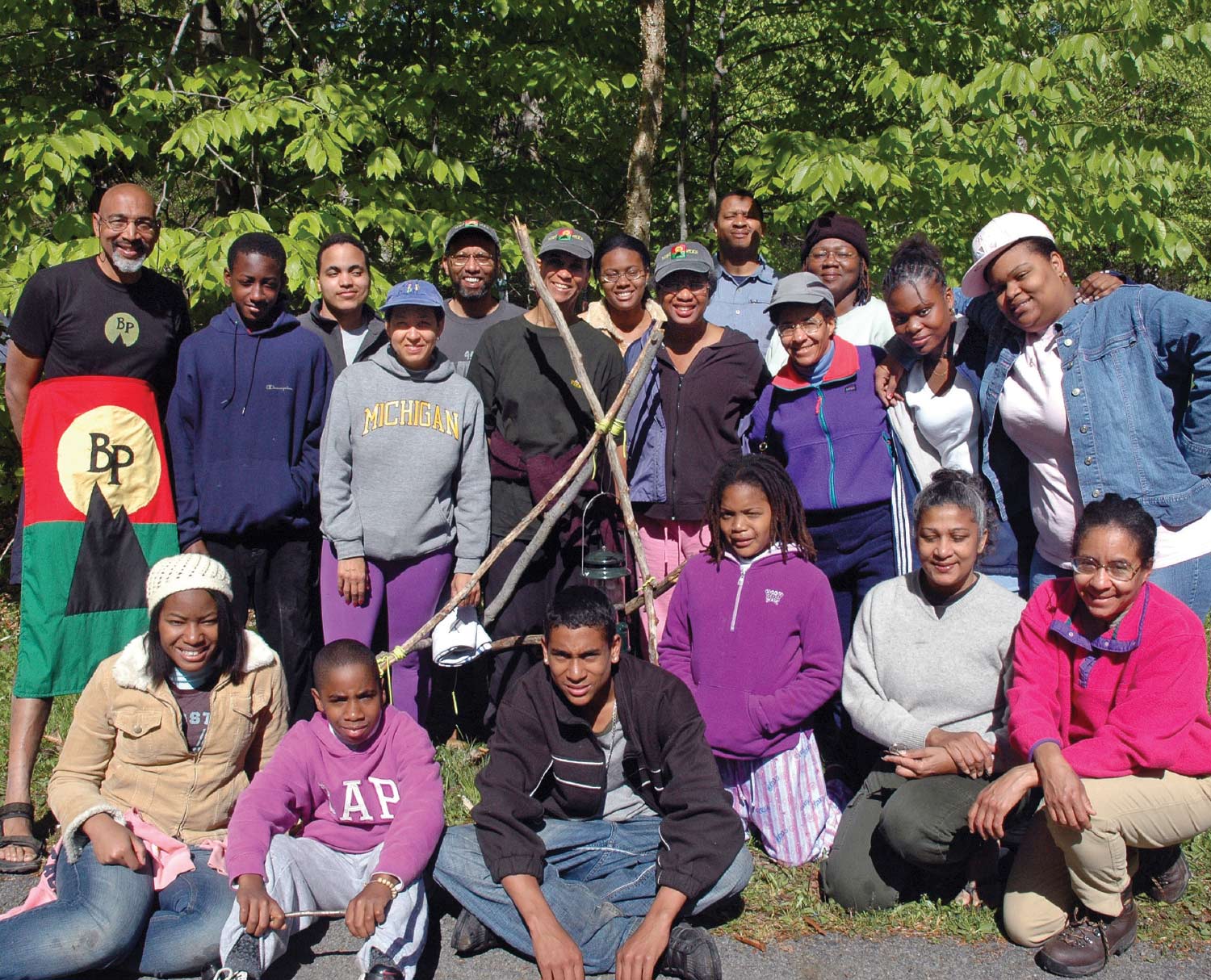
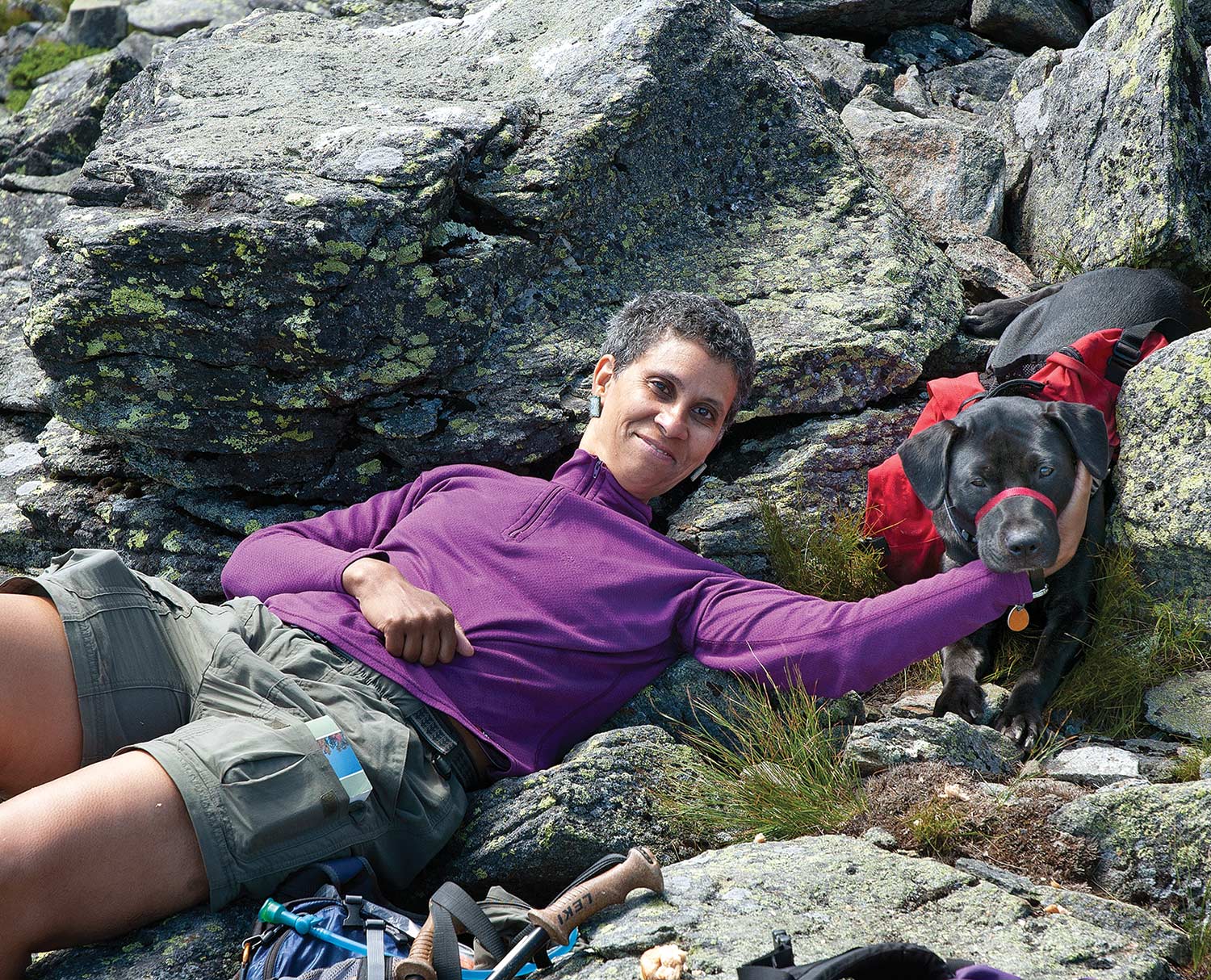
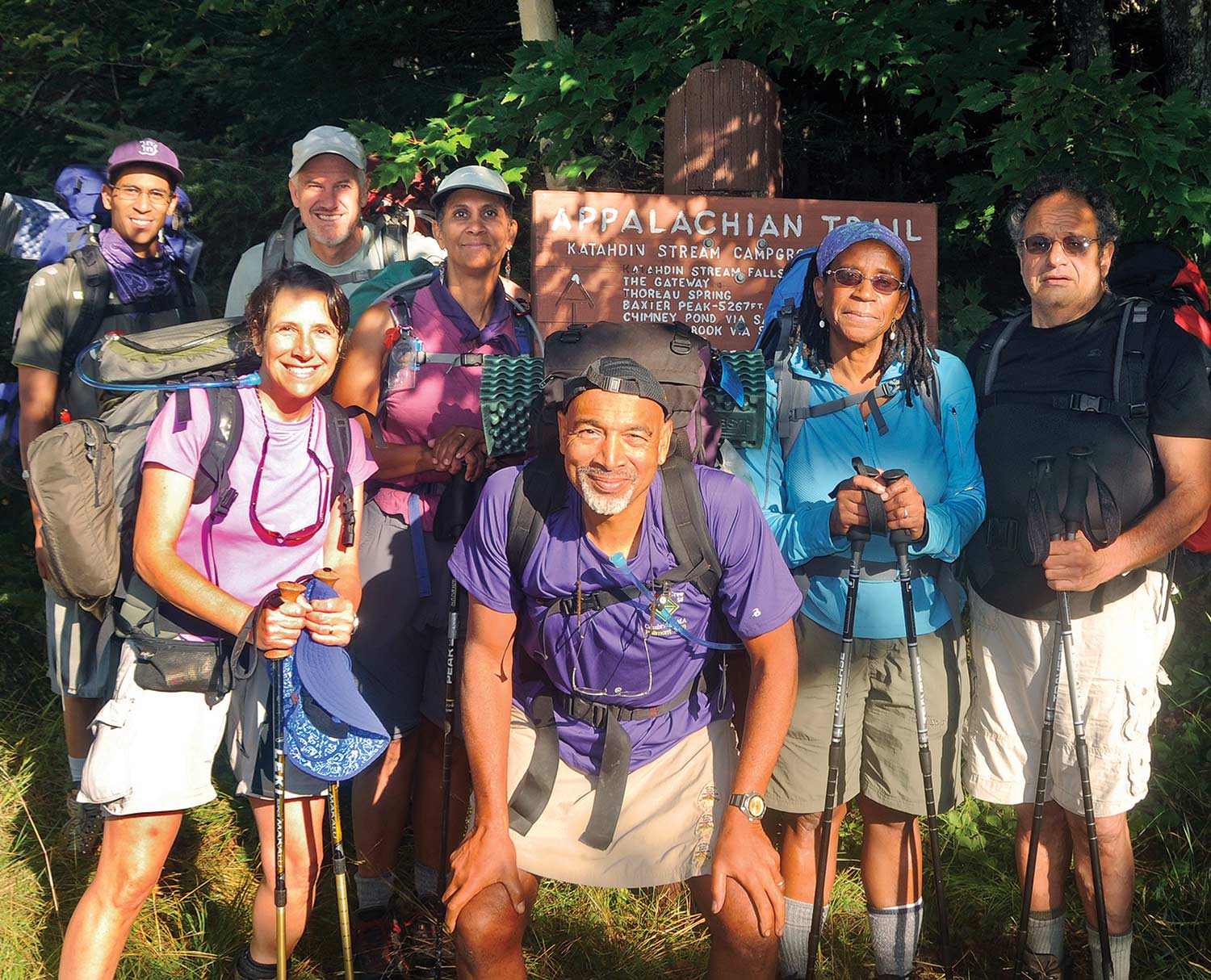
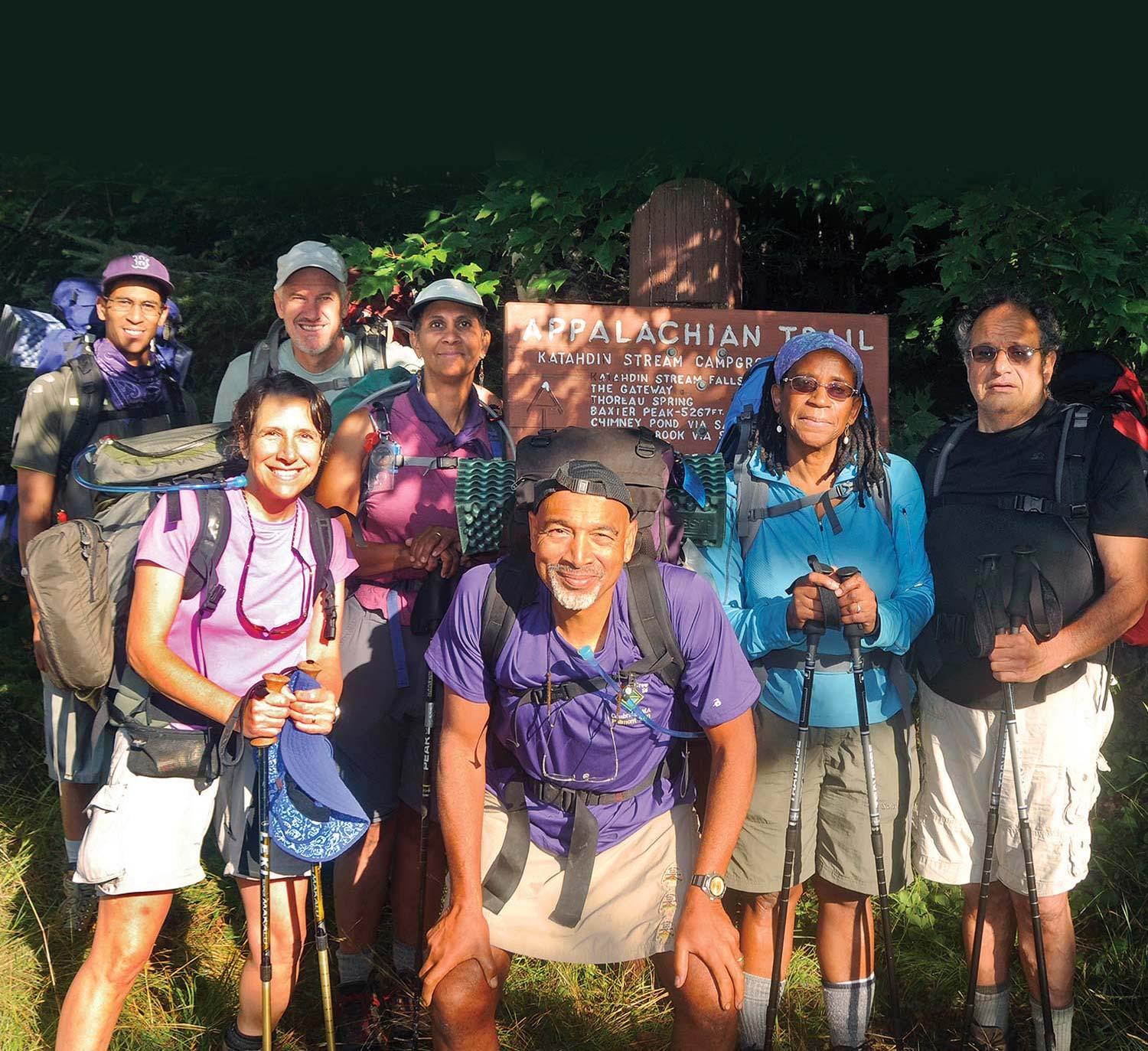
It was not enough. I had many enjoyable interactions at camp but never succeeded in meeting up with people of similar pace to hike the rest of the way with. I realized that my actual joy of being on a trail was sharing it, with my husband, with my boys, with my community. From that point on, my hikes were routines of love. Derrick, who fortunately is a writer whose office is wherever he can take his laptop and Wi-Fi hotspot, would drop me off. If he had a deadline, he would wait for me at my terminus trailhead for the day. If he had time, he would hike in with our dog and meet me.
I fell into a perfect rhythm. Each day would begin with my solitude and experiencing wondrous views and flowers, birds, and animals along the way. I would begin to anticipate where I might see Derrick. On reunion, I could share with him what I’d seen, and he could share with me what to anticipate on the hike out. We could look forward to an evening of visiting local breweries (his “price” for supporting me, one I did not mind at all) and often sleeping in beautiful campgrounds in our camper van.
Many friends hiked with me along the A.T. over those years. I reserved the last seven miles in an easy part of the 100-Mile Wilderness to finish with some of those friends and my now-late dog, Nubia. The connections in that group boggle my mind. One of my hiking friends, Michael, a history buff, is fond of saying: “This is what humans are evolutionarily meant to do, travel distances by foot in small bands.” By traveling by foot in small bands, I feel fulfilled in helping create the strongest of bonds.
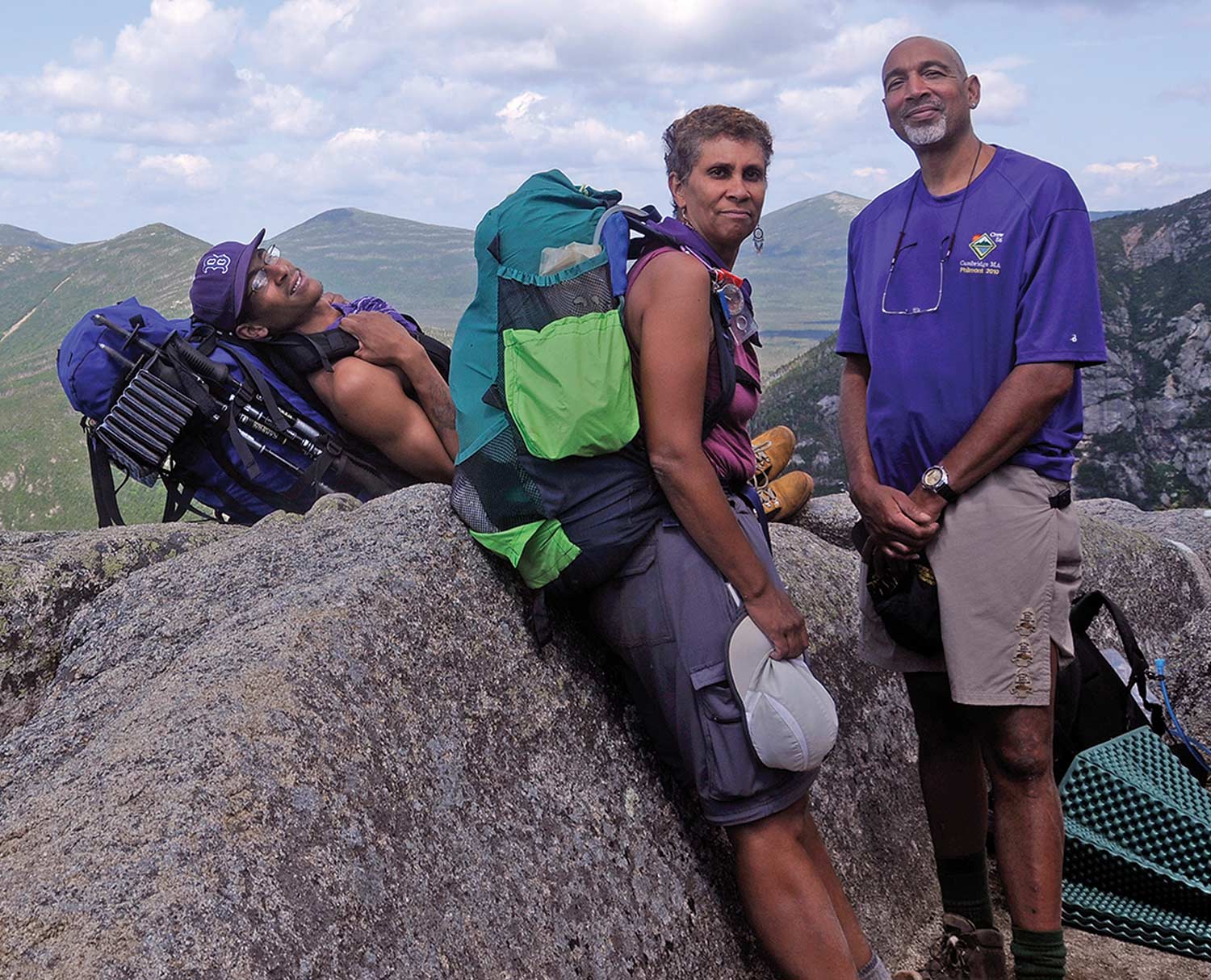
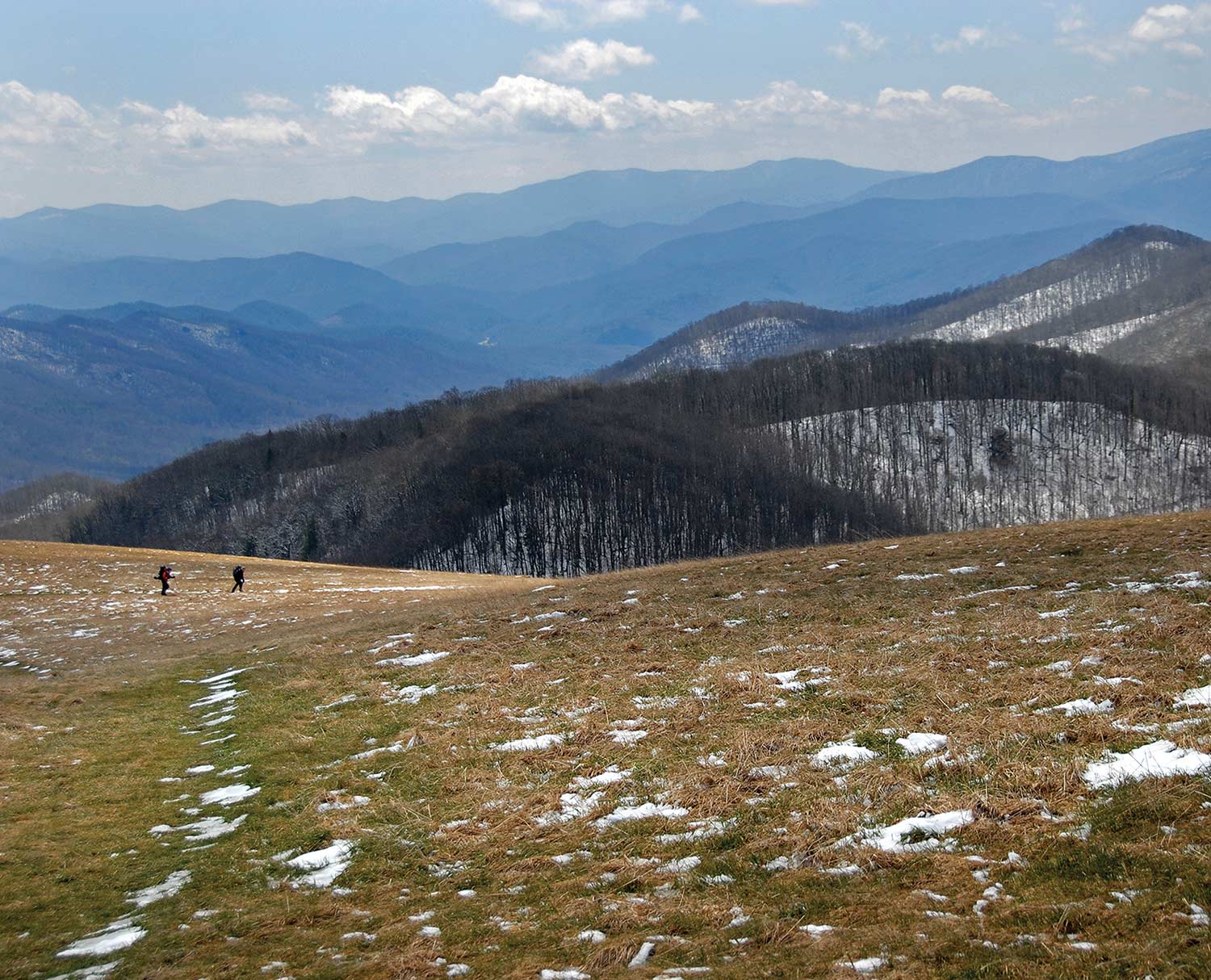
And, where the lines between ubuntu and what makes us human were crystal clear. I had all I needed to get by. A wife to hike with. A son who will talk to you. And maybe a grandson? As I write this in mid-December 2021, Tano and his wife Clarissa gave birth to a son, Haven, our first grandchild.
The most powerful moment of intergenerational sharing of the outdoors I’ve ever witnessed was a 2008 trek to Philmont. One of the other crews in our council had three members of the same family, fifteen-year-old Julian Sookikian, his fifty-year-old father, Steve, and eighty-one-year-old father and grandfather, Vee. Julian told me in a piece for the Boston Globe: “We gave him a big head start, but we’d always thought we’d catch him. But, we were huffing and puffing, and, when we got to where he was, he was sunning himself.”
Vee passed away a couple years ago at ninety-one. At Philmont, he told me, “I knew so many people who, when they turned sixty-five, all they could talk about was sitting in a lounge chair and smoking a pipe. To me, that was like preparing to die. I hope to do this until the day I die.” He just about did. I hope to myself, singing horribly to Haven.
Michelle Holmes became enamored with the outdoors as a child when her mother introduced her to Scouting and camping. As an adult she became a Scout volunteer for her sons and later for many other urban youth in Cambridge, Massachusetts. She started hiking the Appalachian Trail in 2007 at age fifty-two, and continued in sections over the next thirteen years. She completed it in 2019, having done half of the mileage on two artificial knees. As a physician and epidemiologist, she believes in the healing power of nature. She is particularly passionate that it be accessible to those who feel excluded, particularly Black and other People of Color.
Derrick Z. Jackson is the coauthor of Project Puffin: The Improbable Quest to Bring a Beloved Seabird Back to Egg Rock and The Puffin Plan: Restoring Seabirds to Egg Rock and Beyond. The Puffin Plan was winner of the 2021 Gold Award in teen nonfiction from the Independent Book Publishers Association. Jackson, a fellow at the Union of Concerned Scientists and a contributor to Grist.org and ESPN’s The Undefeated, is also the 2021 winner in Excellence in Opinion Writing in the Scripps-Howard Awards and a double 2021 winner in social justice and sports commentary from the National Association of Newspaper Columnists. He is a Scout volunteer and his bird and landscape photography has been a finalist in several contests. He would probably have never become a bird-brain had it not been for Michelle.
–